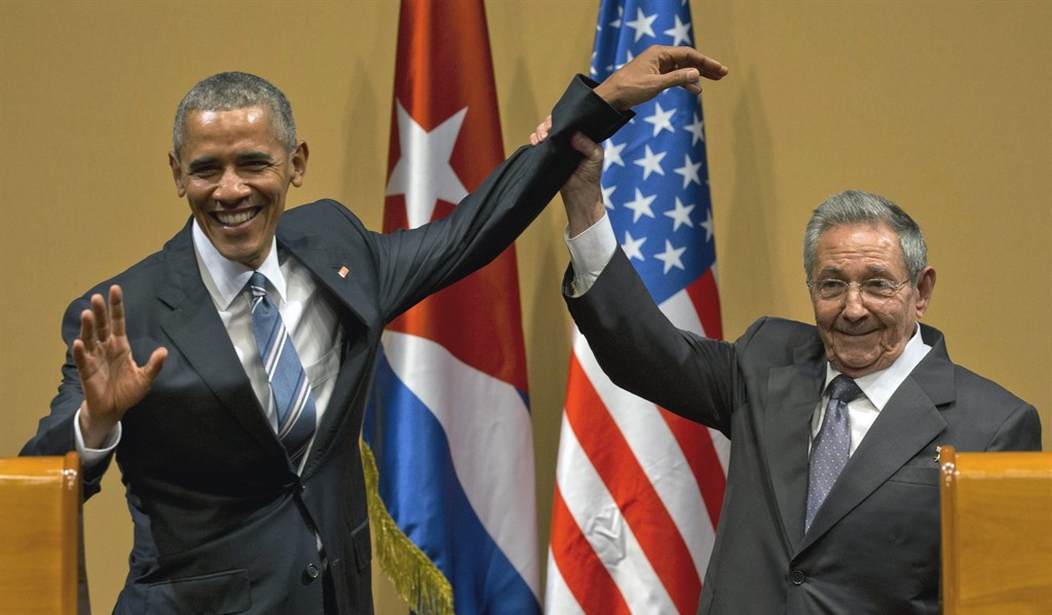Can you hear me now? That may be an ad jingle, but it also is an accurate description of the Trump administration’s message to Cuba in May, when it expelled two diplomats. The Washington Post reported last night that American diplomats and their families in Havana had been victimized by a bizarre attack, leaving one person permanently deaf and others in need of medical care:
The U.S. government expelled two Cuban diplomats in May, after Americans working at the U.S. Embassy in Havana suffered unexplained physical ailments, the State Department said Thursday.
A small number of Americans began reporting symptoms at the end of 2016, and a few either were removed for medical treatment in the United States or asked to leave, State Department officials said Thursday.
Spokeswoman Heather Nauert linked “incidents which have caused a variety of physical symptoms” to the decision to expel two Cubans, but she did not directly blame the Cuban government for harming the Americans.
Nauert’s ambiguity is both diplomatic and legal. The FBI opened an investigation into the allegations months ago, and have not yet reached firm conclusions. The timing for this announcement raises some questions, though. Why not make these allegations public in May, when the State Department expelled the two Cuban diplomats, or the next month, when Donald Trump declared that he was “canceling the last administration’s completely one-sided deal with Cuba”? Or in February, when the Cuban government acknowledges they also began investigating the issue?
Cuba also says it is investigating the allegations while denying any involvement in attacks on diplomats or their families. They hinted that the culprit might be another antagonist:
The statement from the Cuban Foreign Ministry said it had been informed of the incidents on Feb. 17 and had launched an “exhaustive, high-priority, urgent investigation at the behest of the highest level of the Cuban government.”
It said the decision to expel two Cuban diplomats was “unjustified and baseless.” …
Cuba employs a state security apparatus that keeps many people under surveillance and US diplomats are among the most closely monitored people on the island. Like virtually all foreign diplomats in Cuba, the victims of the incidents lived in housing owned and maintained by the Cuban government.
However, officials familiar with the probe said investigators were looking into the possibilities that the incidents were carried out by a third country such as Russia, possibly operating without the knowledge of Cuba’s formal chain of command.
That seems … doubtful. Why would Russia target Americans in Havana rather than in a more strategically sensitive country, such as Ukraine? Trump made his hostility to Barack Obama’s Cuban agreement plain during the campaign, so there was zero chance that the US would eclipse Russia in Havana at all. That would run a high risk for almost no reward. That’s also true for Cuba, but as the Post’s Anne Gearan notes, the Castro regime has a long track record of harassing diplomats for countries foolish enough to establish diplomatic relations with them. Like the US, for example.








Join the conversation as a VIP Member